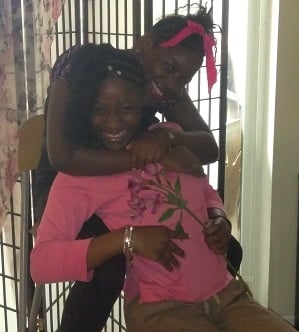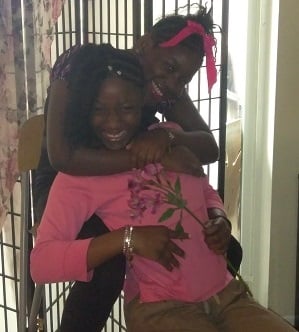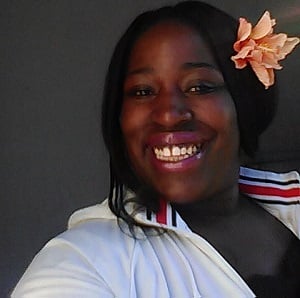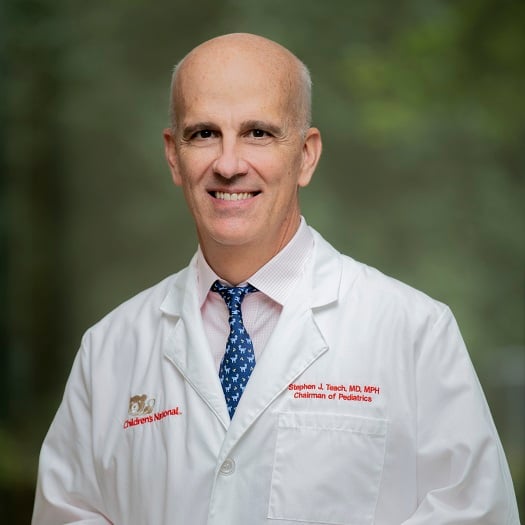
Heaven, Tiara and Messiah's Story

 When Tiara Cuthbertson’s youngest daughter, Messiah, was just a few months old, breathing troubles landed her in the local hospital’s Emergency Department. Doctors there diagnosed her with respiratory syncytial virus (RSV), a common respiratory infection for children. But a couple months later and then a couple months after that, she was back again.
“Each time, they told me she had RSV,” Cuthbertson remembers. “I knew my baby didn’t have RSV.”
When Tiara Cuthbertson’s youngest daughter, Messiah, was just a few months old, breathing troubles landed her in the local hospital’s Emergency Department. Doctors there diagnosed her with respiratory syncytial virus (RSV), a common respiratory infection for children. But a couple months later and then a couple months after that, she was back again.
“Each time, they told me she had RSV,” Cuthbertson remembers. “I knew my baby didn’t have RSV.”
By the time Messiah was 3 years old, she was finally diagnosed with asthma. Her older sister, Heaven, had been misdiagnosed two years earlier but, shortly after Messiah, Heaven also was also diagnosed with asthma. Both girls were prescribed several maintenance and rescue medicines, including inhalers with spacers. But their doctors didn’t explain the respiratory condition well to Cuthbertson and never gave detailed instructions on how to administer the medicines.
The health system that the family used also had such frequent physician turnover, she adds, that she and the girls never developed a strong relationship with any of their doctors, complicating their ability to get good care. “I knew with asthma that people needed inhalers, that you couldn’t be around cigarette smoke, stuff like that,” she says. “Other than that, I was really in the blind.”
Messiah continued to make frequent trips to the Emergency Department, with at least four visits a year until she was about 5 years old. While Heaven had attended day care since she was about 6 months old, Cuthbertson was afraid to enroll Messiah: She feared the worst if her younger daughter had an asthma attack away from home.
A terrifying event finally precipitated change. While Cuthbertson was riding the bus to work one day, she had a coughing fit so intense that she could barely breathe. After getting off at the stop in front of her home, she sat on the curb, desperately trying to suppress a choking sensation.
 With the little air she was able to draw into her lungs, she asked a neighbor who had come to check on her to grab one of her daughters’ inhalers. “I said, ‘I think I’m having an asthma attack,' " she remembers.
With the little air she was able to draw into her lungs, she asked a neighbor who had come to check on her to grab one of her daughters’ inhalers. “I said, ‘I think I’m having an asthma attack,' " she remembers.
Soon afterward, Cuthbertson too was diagnosed with asthma. On a family visit to a new physician for asthma checkups, Cuthbertson heard the doctor mention a study called BEAMS, short for Breathe With Ease: A Unique Approach to Managing Stress.
BEAMS, a recently completed study, focused on whether helping parents of children with asthma manage their stress would improve asthma outcomes for their children. It was headed by Stephen J. Teach, M.D., M.P.H., the director and principal investigator for IMPACT DC, Children’s award-winning asthma program that aims to improve asthma care and outcomes for children in the District of Columbia region. After hearing that she was eligible to become a parent advisor for the BEAMS study, Cuthbertson started attending meetings to tailor the study’s materials to meet families’ needs.
One day, she arrived at the meeting short of breath. Out of her rescue medicine, she’d planned to pick up more at the nearby pharmacy afterward, but Dr. Teach had a different idea. He sent her with another BEAMS researcher immediately to get more medicine. But after self-administering the medicine and returning to the meeting, Cuthbertson’s symptoms weren’t any better.
Dr. Teach took time to evaluate how she was using the inhaler and spacer and provide instructions on a better technique. With Dr. Teach’s training, Cuthbertson realized that not only had she been using her own inhaler incorrectly, but she also had been delivering her daughters’ medicines the wrong way. “I was never taught what to do until that moment. It was a real eye-opener,” she says.
Now, through the proper use of their asthma medicines and better knowledge of what triggers their asthma attacks, each family member’s asthma is much better controlled, she says. They don’t let asthma limit their activities. Cuthbertson also considers herself an asthma advocate. She helps advise families in her neighborhood, and she’s spoken on panels to physicians learning about the parents’ experience. She also continues to participate as a parent advisor for different studies. “My life has become better because I’m more educated and can help others,” she says.



